SUMMARY
This is AI generated summarization, which may have errors. For context, always refer to the full article.
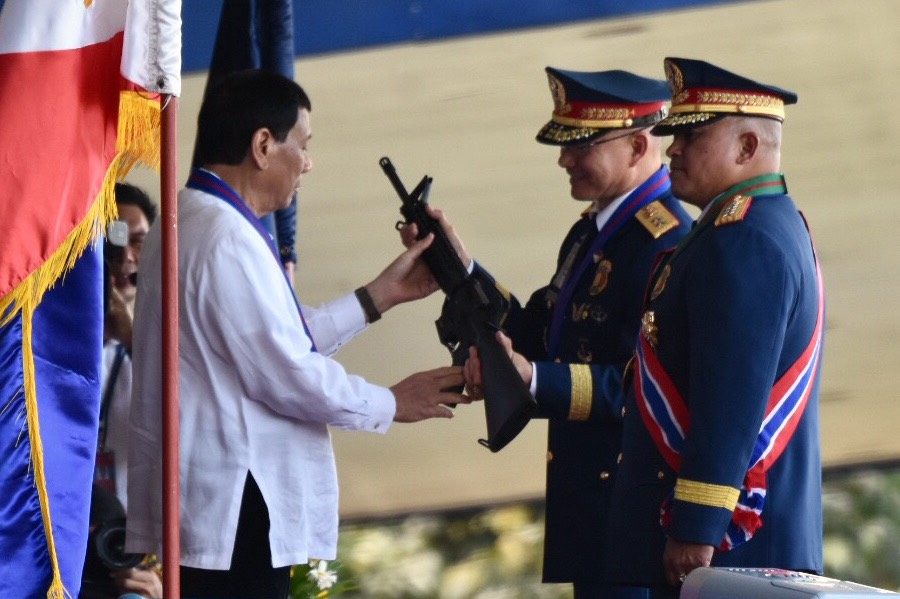
MANILA, Philippines – Oscar Albayalde was appointed on the basis of the President’s perception.
It was in April 2018. President Rodrigo Duterte’s most trusted cop, Ronald dela Rosa, was stepping down and he had to choose a police chief, fast. They were in the middle of a “war” to expunge drugs, crime, and corruption, and he needed a worthy successor to lead the 190,000-strong police force.
The President consulted with his next most trusted cops – the men in blue from Davao. There were two names that hung in the air. One was kind, the other was strict, said the Davao cops.
“Sir, he’s too strict,” Duterte recalled them saying about Oscar Albayalde, then the chief of the National Capital Region Police Office (NCRPO).
For that, Duterte chose Albayalde, a cop who had never served in the Davao Region. For Duterte, a hometown connection did not appear to be convincing.
The President said: “The stricter the better.”
Weeks ahead of Duterte’s meeting, Albayalde often landed in the news for his motorcycle rounds in Metro Manila. As NCRPO chief, he wanted the capital region’s cops whipped to shape, for the rest of the regions to follow.
Aside from the high kill record in the drug war under his region, Albayalde was known for sacking cops. He sacked sleeping cops. He sacked drinking cops. He sacked underperforming cops. He sacked drug-positive cops. At one point, he sacked the entire police force of the Caloocan City Police Station over a drug war killing.
Oscar Albayalde was known as the strict cop. A year and 6 months later, a defeated Albayalde stepped down from his post – on piling allegations that he was not strict enough.
Oscar Albayalde’s rocky beginning
Oscar Albayalde was known among the PNP’s top brass as one of their “brightest.” A cadet who went straight to Special Action Force – a stark contrast to his predecessor Dela Rosa, who was dubbed their “class clown” at the Philippine Military Academy.
Upon assumption as police chief, he vowed to expand to the rest of the country what the President saw him doing in Metro Manila. He was focusing on their internal cleansing and discipline programs. And so the sackings continued.
Albayalde was also a leader sensitive to criticism and comrades who go against his will. He made a show of how he leads for the low-ranking cops, and the police’s top brass.
A week into his post, he ordered an investigation against cops who bashed him on Facebook. He was not being petty, he said. He only wanted to discipline his men.
He summoned them to his office and gave them a tongue-lashing. Their photos standing erect against a white wall, faces blurred, were sent on Viber to reporters. It was announced they would be reassigned to Mindanao. It sent a clear message: the PNP chief will not be disrespected.
He came into another conflict with Lieutenant General Camilo Cascolan – one of the authors of the controversial Oplan Double Barrel and his successor as NCRPO chief.
Just after 6 weeks into the post, Cascolan was pulled in by Albayalde and dropped to a Camp Crame office position. Albayalde said it was a “collective decision” and not his alone.
But Cascolan maintained in interviews after his sacking that he performed his duty as Albayalde’s successor. Like Albayalde, Cascolan cruised around the capital to visit police stations, also sacking underperforming cops.
Police sources told Rappler that the two had been caught in the conflict long before Dela Rosa retired. The tension came to a head when Albayalde learned of Cascolan allowing cops to avail of 8-hour shifts instead of his preferred 12-hour shifts. For generals in Camp Crame, Cascolan, a known friend of Dela Rosa, was the padded equivalent of Albayalde’s bashers.
Cascolan was replaced by Major General Guillermo Eleazar, a known subordinate of Albayalde for their shared time at the NCRPO.
Once “demoted” by Albayalde, Cascolan is now among the top contenders for the resigned police chief’s empty seat, along with Eleazar.
The loyal outsider unscathed
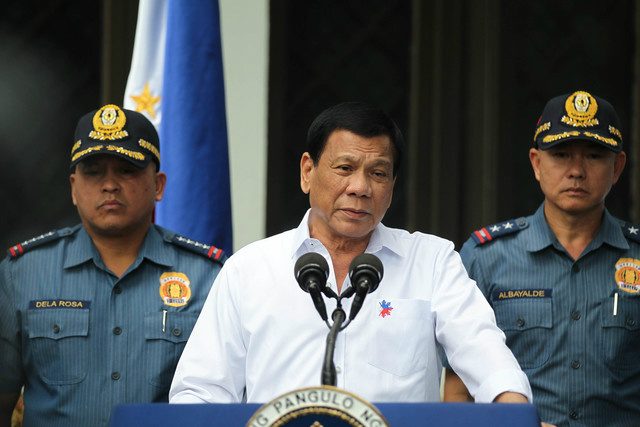
Albayalde has also distinguished himself from his predecessor for the calm he showed when treading explosive issues.
Under his watch, the drug war kill tally rose from 4,000 to over 5,500. Five mayors and vice mayors were killed by drive-by gunmen. Billions worth of illegal drugs were smuggled through the Bureau of Customs. The epicenter of drug war killings, once in his home turf of Metro Manila, moved to Central Luzon, and then later, to Negros island.
As Duterte’s second police chief, he also inherited a Supreme Court petition that questioned the constitutionality of the war on drugs.
In these controversies, he echoed inherited responses: that the police enjoy the presumption of regularity, that drug suspects fought back, and while each drug-related killing was probed, they would only share documents to independent investigators upon the approval of Duterte himself.
For his quick and outburst-free retorts, Albayalde was perceived as more cerebral and level-headed compared to his predecessor Dela Rosa.
He further built his image in reviving the ban against presentation of suspects to the media. It was also under him that the police unit most depended on its internal cleansing efforts, the Counter-Intelligence Task Force or CITF, upgraded to a fully staffed Integrity Monitoring and Enforcement Group or IMEG.
But Albayalde also had his moments.
He wondered why state scholars were protesting against the government. He oversaw cops who visited media offices, justifying it as being simply part of community relations. By the President’s command, Albayalde saw the police arresting loitering Filipinos. When polling firm Social Weather Stations (SWS) reported that the anti-drug campaign worried Filipinos about being killed, Albayalde said the survey was done incorrectly.
When a hooded man in a dark room called Bikoy alleged in viral videos that the President’s closest people were involved in illegal drugs, he ordered an investigation. When Bikoy surfaced, Albayalde called him an “information peddler,” then days later when Bikoy recanted, Albayalde welcomed him in a press conference.
Loyalty was a potent resource for the cop who did not belong in the President’s inner circle.
Albayalde waged the President’s war. He tolerated the President’s sweeping statements. He deferred to his wisdom. He did not mind that the Commander-in-Chief, at times, mispronounced his name as “Agbayalde.” He stuck to the script and hoped for a well-decorated retirement.
Then came September 2019.
From Vietnam, with love
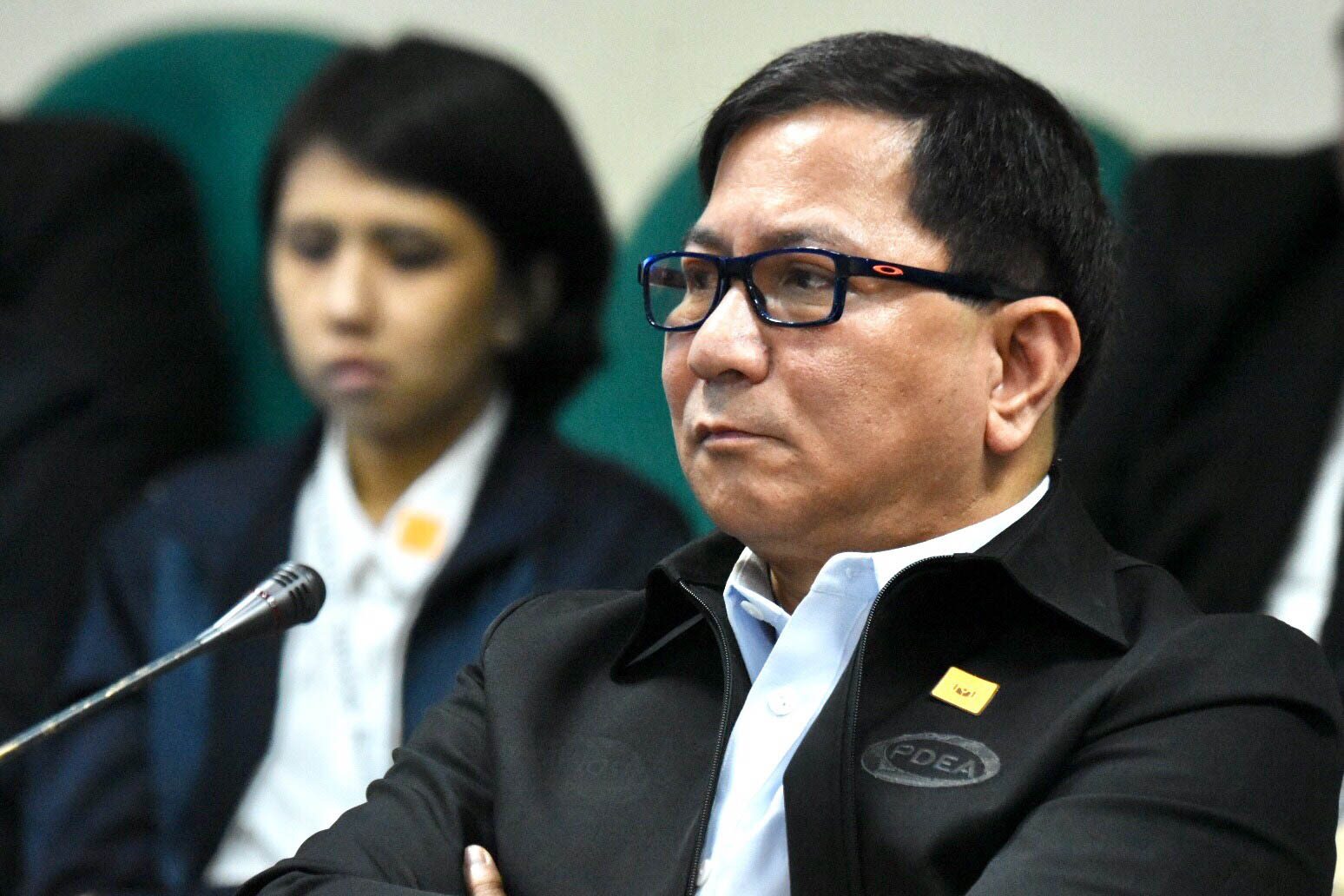
Albayalde’s fall from grace began in a cold and unlikely place: a Senate budget hearing.
On September 16, Aaron Aquino, the ever-frustrated chief of the Philippine Drug Enforcement Agency, dropped the first bombshell that triggered what came after: that drug recycling remained to be rampant in the Philippine National Police.
That time, Albayalde was not even in the same time zone. He was in Vietnam for the ASEAN police conference in Hanoi from September 16 to 20. He could not speak for the police.
The only general who stood up to defend the police was Eleazar, slamming Aquino for not letting them know first before he made the damning testimony.
Aquino’s revelation was enough to alarm the Senate blue ribbon committee to pivot an exhausted hearing on the Good Conduct Time Allowance law towards sniffing for corruption in the PNP.
The Senate fanned flames of suspense in inviting, then keeping in an executive session, the former Criminal Investigation Detection Group (CIDG) chief and now Baguio City Mayor Benjamin Magalong – the general who first blew the whistle on former president Benigno Aquino III in the 2015 Mamasapano probe.
Albayalde held his testimonial parade at the PMA in Baguio amid rumors that he had been implicated in the executive session.
When reporters asked Senator Richard Gordon after the closed-door meeting what rank the most senior drug-tagged cop held, he declined to comment, locked his lips, then dragged his right palm down his face with 4 stretched fingers – an allusion to 4 stars, the rank of the police chief.
Back-to-back bombshells
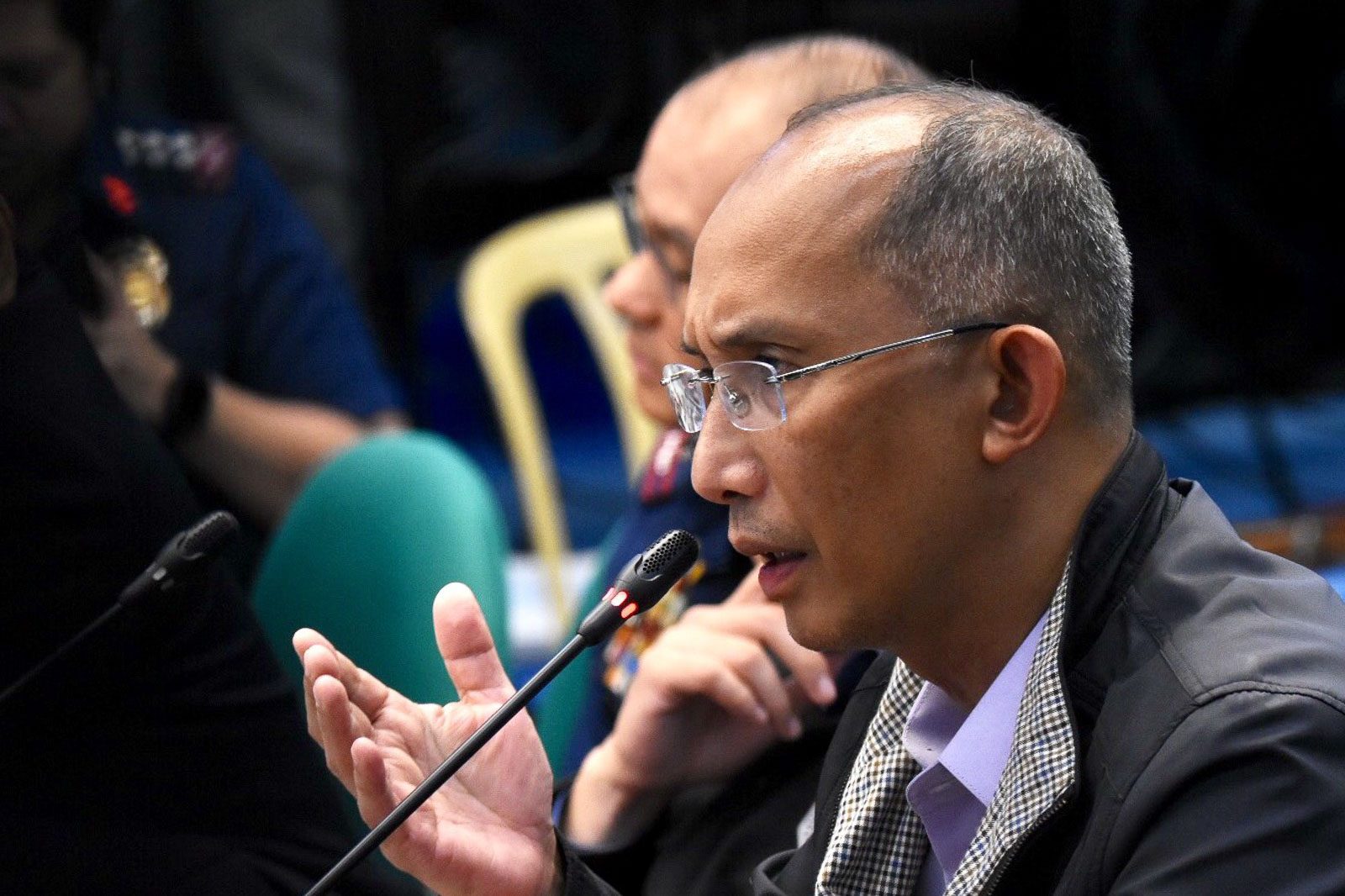
The snowball became an avalanche when the secret session turned public.
Magalong named 13 “ninja cops” he found to have been involved in drug recycling in November 2013. The cops had reported to have busted a Chinese drug suspect, but further validation revealed another story.
The cops were sacked months later after CIDG probers found that they underdeclared the hauled shabu (methamphetamine) by over 160 kilograms, accepted a bribe, let the suspect go, and then arrested a fall guy.
And all of it happened under the nose of their provincial police chief, Oscar Albayalde.
Albayalde was sacked for months following the operation, but made a comeback with the prime post of NCRPO chief in 2016 under Duterte. PDEA chief Aaron Aquino was then the Central Luzon police chief, holding direct supervision over Pampanga.
During the Senate hearing on October 1, Aquino dropped another bombshell. He recounted that when they were regional commanders, Albayalde asked him not to implement the already years-delayed dismissal order for the 13 Pampanga cops. Puzzled, Aquino asked Albayalde about his request.
Aquino said Albayalde replied, “Sir, those are my people.”
The last bombshell came from retired general Rudy Lacadin, former deputy of Magalong in the CIDG who probed the case. He said that as he was starting the probe, Albayalde called him to confirm the investigation.
“I didn’t know if jokingly, he said, ‘Actually sir, konti lang naman napunta sa ‘kin diyan (Actually sir, I only got little from that),’” Lacadin quoted Albayalde as saying.
Albayalde also baffled senators for invoking the presumption of regularity for the 13 cops, even when Senator Panfilo Lacson surgically interpellated the cops to reveal that their testimonies did not add up. (READ: ‘Spectacle of a grand cover-up’: Senate hearing bares how ‘ninja cops’ remain in service)
By the end of the hearing, calls for resignation poured in. He spent months building up his stern image, but in a matter of days, it crumbled. He was being labeled as negligent, if not complicit, in the operation.
The fight to stay
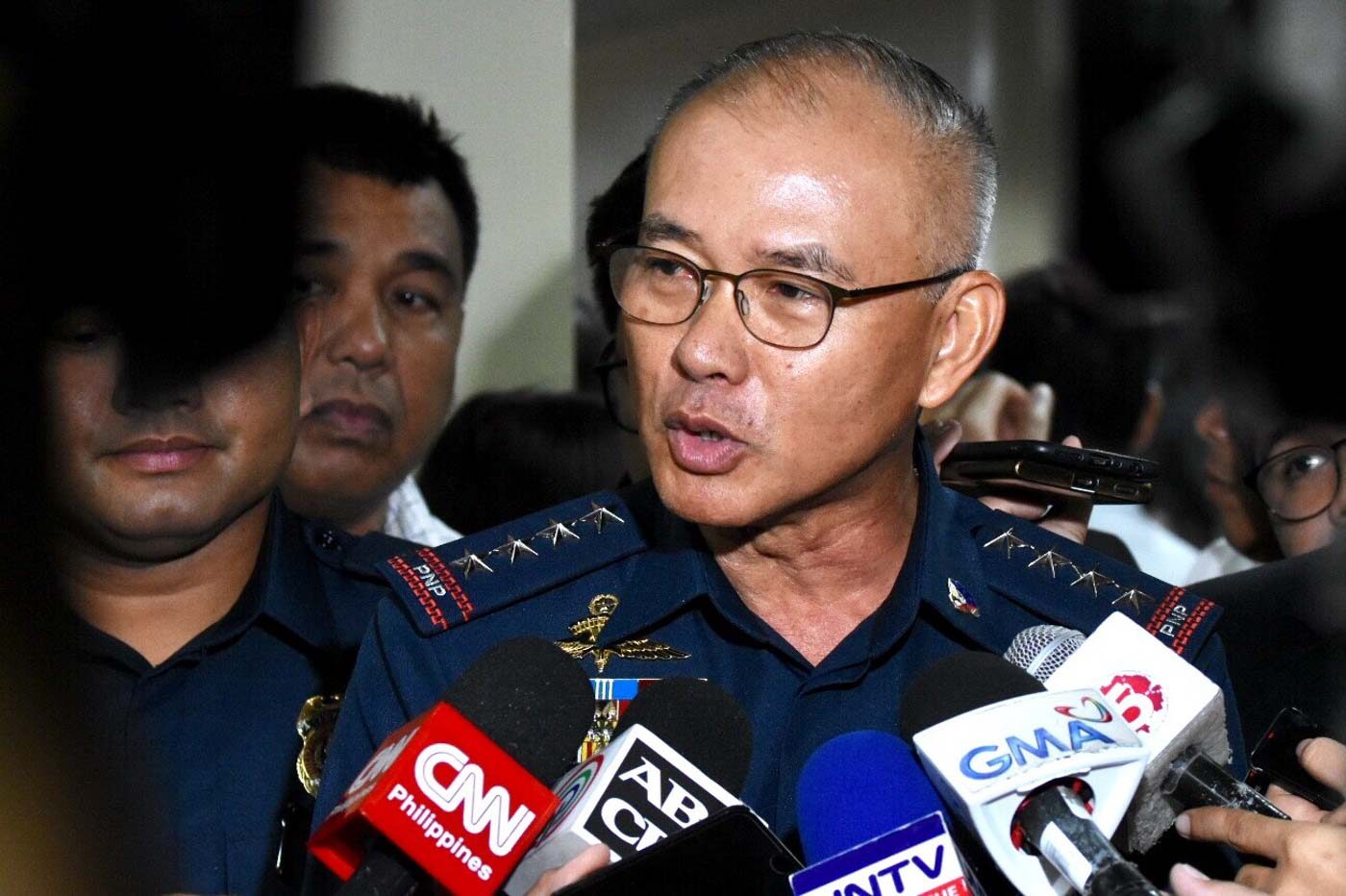
Albayalde fought hard to keep his position and his reputation intact. He granted interviews left and right, and met with Camp Crame reporters in their press office for an “off the record” talk. He even posed for photos with top lawyer Estelito Mendoza as he threatened to sue retired general Lacadin.
In his mind, the 3 former generals hatched a conspiracy against him to compromise his retirement. Albayalde was expected to endorse Eleazar, but with the controversy, he said his blessing would have become a “kiss of death.” It was a theory that landed with a thud.
Even with President Duterte demanding clear proof to merit firing, Albayalde could not directly answer the big questions: Why have the 13 cops stayed in the police service, with one of them even landing a coveted post? What does it say about the administration’s war on drugs? What does it say about his strict cop persona? Was his conscience clear?
Facing these questions, the usually calm Albayalde erupted for the first time when hounded by journalists after the session on October 3. He accused a television reporter of “prejudging” him, and told another, “Ang kulit mo eh (you’re annoying already).”
At the Senate, he answered with a question that did little to clear his name: if he was guilty, why was he allowed to stay in the service and was appointed PNP chief by Duterte?
Behind the scenes, sitting and retired generals were advising him to resign to spare the PNP and the PMA from the controversy. Politicians also recommended that he step down to keep Duterte’s unrelenting anti-drug campaign credible. His children, Albayalde said, were already suffering.
He submitted his resignation letter to Eduardo Año on October 12, Saturday afternoon. Duterte accepted it on Sunday evening.
On Monday, Albayalde sluggishly stepped behind the pedestal at the foot of the PNP’s National Headquarters building, a bit unstable as he looked over thousands of cops standing in salute before him. He felt the stare of the generals and colonels behind as he spoke, his voice cracking.
Oscar Albayalde, the 22nd chief of the PNP, was stepping down. He still believed he was the victim of a conspiracy stirred by his foes, but he said he was still grateful. He thanked the President for the trust, and the public for their support.
“In my one year and 6 months as Chief PNP, I have served my country well,” he declared. – Rappler.com
TOP PHOTO: LAST ADDRESS. PNP chief Oscar Albayalde announces his resignation in a Camp Crame flag-raising ceremony on Monday, October 14. PNP photo.
Add a comment
How does this make you feel?
There are no comments yet. Add your comment to start the conversation.